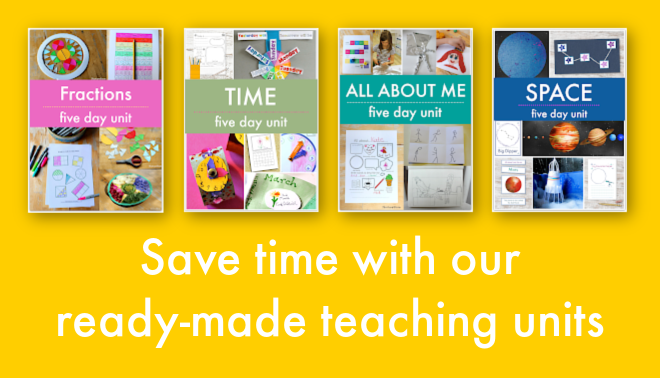The words we use with our children have such an impact. Not all positive feedback is created equal. Did you know that how you praise your children can affect their confidence, for good and bad?
Here’s how you can positively support your children with practical praise that encourages them to keep on trying and developing: what to say instead of ‘great job’.

How to give effective praise to children
We all want our children to grow up feeling happy, confident and successful. We encourage them, reward their progress and praise them when they do something good. But there’s a school of thought that says we should stop always praising our children, as in fact, some praise could do more harm than good.
A report says “lavish praise” does not help pupils and “could make them even less likely to succeed”. This correlates with research findings from Carol Dweck, Professor of Psychology at Stanford University.
I think the kind of praise you give your children makes a big difference to how they approach learning and also their general behaviour. I try to use very specific and sincere praise, and I’ve seen how positively both my girls respond, and how it helps them value themselves and better judge their own effort and behaviour.
Dweck, author of the book MindSet, says we can have two ways of thinking about ourselves and our abilities.
What is a fixed mindset?
Some children have a fixed mindset.
They believe they have certain talents and capabilities, and aren’t good at other things.
If we praise their results – that they are good at maths, for example – we can stop them trying new things, and even stop them developing the skills they think they are good at.
If you have been enjoying praise for being good at maths, you risk disappointment, failing, and losing the approval of your parents and teachers, if you push yourself to try something new, or something that stretches you.
So these children choose to not try, and therefore limit their success at school and in later life.
What is a growth mindset?
Other children have a growth mindset, believing that they have the ability to develop their skills and grow their brain – through study and practice.
Giving them encouragement for trying; thinking of different ways to do things; practising; and not giving up, helps to raise children who feel confident to stretch themselves, and therefore paves the way for them to gain new skills and become more successful.
You can hear Professor Dweck talk about a growth mind set, and the science behind it, in this interview with the Khan Academy.
To raise children who are able to do well in life, learn new skills in lots of different areas as they require them, and be adaptable to life’s circumstances, we should be encouraging this growth mindset.
This means focusing on what your child is doing and the useful skills they are trying, rather than the outcome they get.
We can use the feedback we give to also encourage children to see their own worth and the intrinsic value of doing or learning something – not for praise but because it makes them feel good, helps someone else, or lets them learn a new skill for themselves. It applies to behaviour, practical, and academic skills.
Rather than saying a bland “well done”, you can give your child specific praise that details what it is you are really impressed with. So we might say:
– Look how much your brother is smiling because you let him play with your train.
– Thank you for putting your shoes on by yourself, it makes it so much easier to get ready to go and play at the park.
– I really appreciate you helping me lay the table for dinner. I love it when we work as a team.
Rather than heaping praise on a child getting all their spellings correct, let’s praise the skills they put in practise as they worked on them. So we might say:
– You really concentrated today when you were practising your spellings.
– I’m impressed you worked on your spellings every day this week.
– You has a good try at spelling that word even though you found it difficult.
It can be instinctive to say “well done”, but if you are interested in helping your child develop a growth mindset, you might want to change the way you give feedback.
Practical praise: What to say instead of ‘well done’
Here’s a selection of practical praise you can use to promote positive behaviour and successful learning. At the end of the slides you’ll find a great poster that you can print off and stick up, as a handy reminder to say something more empowering than “well done”.
I saw you were taking turns, and so you both got to enjoy using the cars. Look at you both having fun!
You shared your toys kindly. Look how happy you made him.
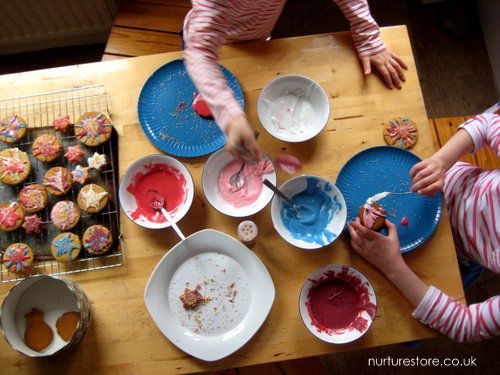
I love it when you take turns with things. It means we all get to join in and enjoy ourselves.
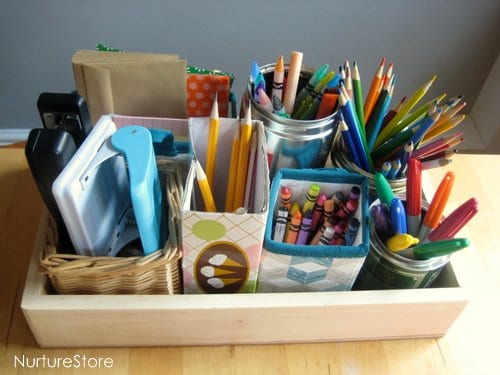
Thank you for helping me tidy up. It’s so much quicker when you help me – so now we can go to the park.
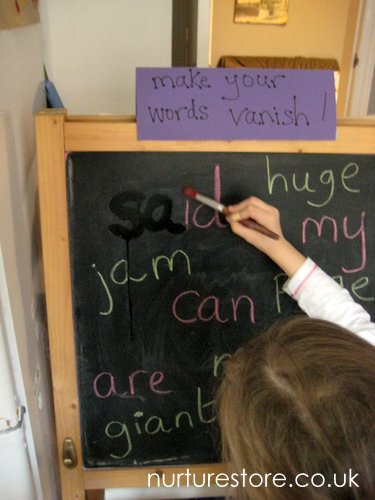
I can see you are taking your time to paint over every letter very carefully.
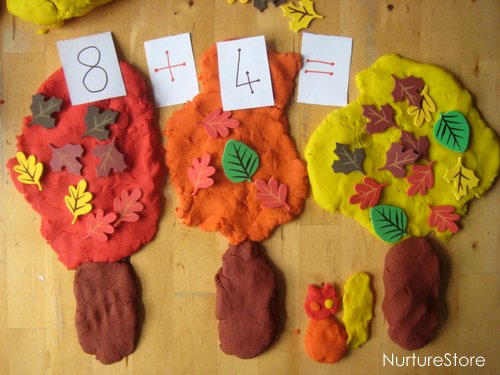
It was a great idea to count those leaves to work out the answer. It’s smart to try something that can help you work it out.
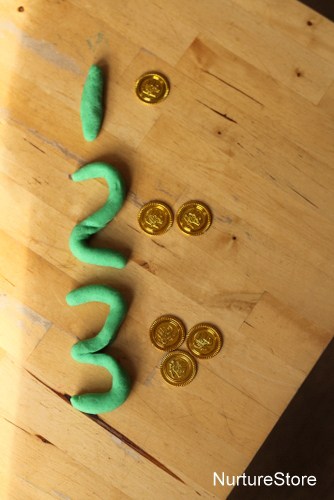
Look at that! You matched each number with the right amount of coins.
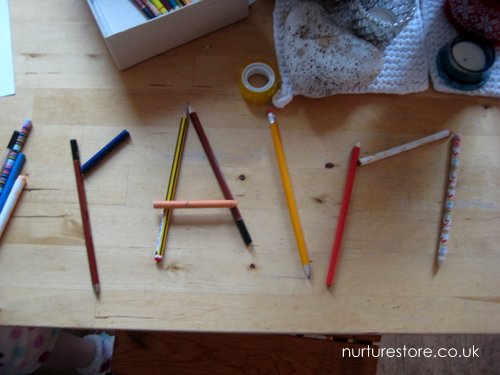
Wow! You thought of an interesting way to write your word. How did you think of making it with pencils?
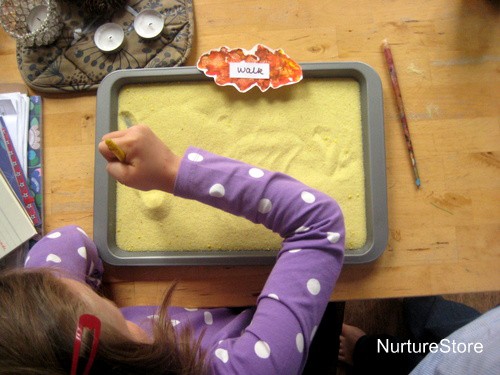
It’s great to see you working on your spellings. Lots of practice is how we learn new things.
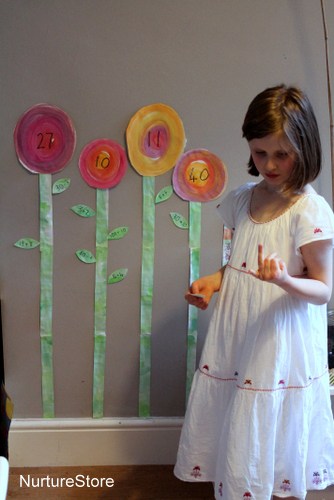
I saw you used your fingers to help you work out the answer. That was a good technique you thought of.
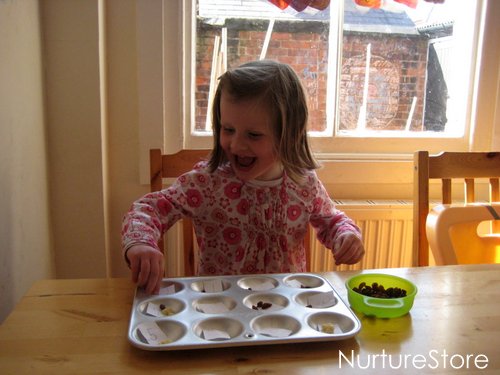
You look so pleased that you got all the numbers right!
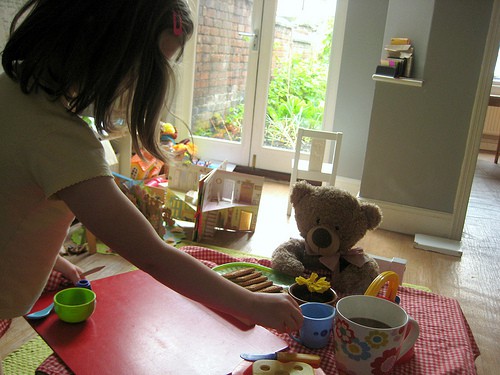
You are taking care of your teddy so kindly. I bet he feels really welcome.
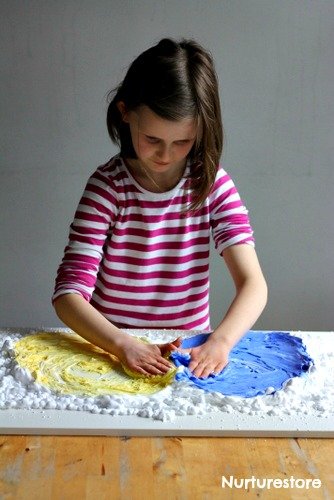
I can see you’re trying a new experiment. What’s happening to the colours?

I love it when you two work as a team. I really appreciate you both helping.
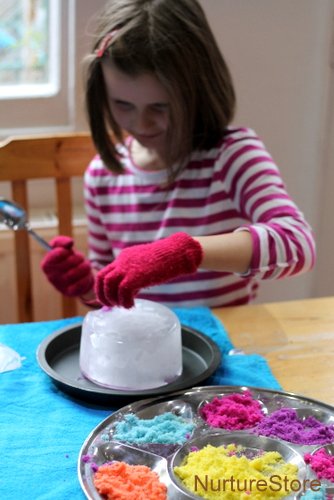
Wow, you tried something new! Are you pleased that you cracked the egg all by yourself?
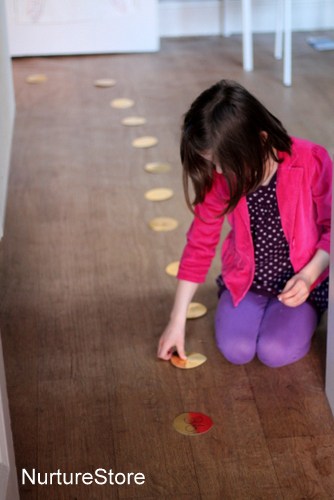
That counting took a long time didn’t it? I’m really proud that you kept on going and didn’t give up.
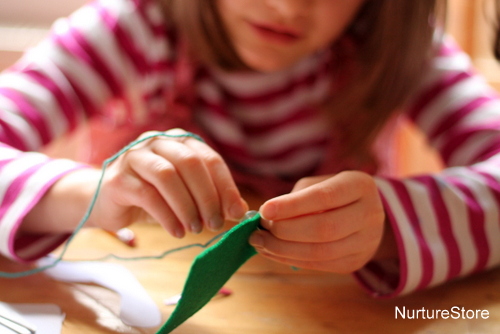
I can see how much you are concentrating to get those tricky stitches in place.

Tell me about your picture? Who lives in that house?
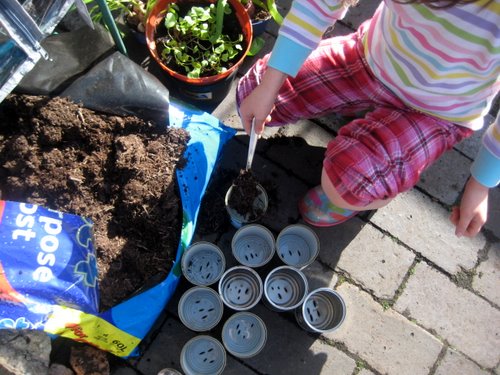
I can see you are working slowly there, so you haven’t spilt anything. Thanks for taking your time and helping.
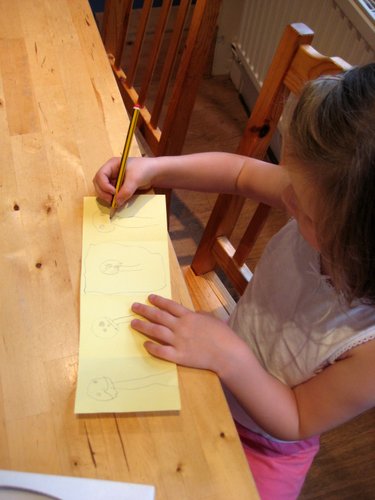
I can see that you have spent a lot of time on your drawings. You kept on working and working and look, you made a whole book!
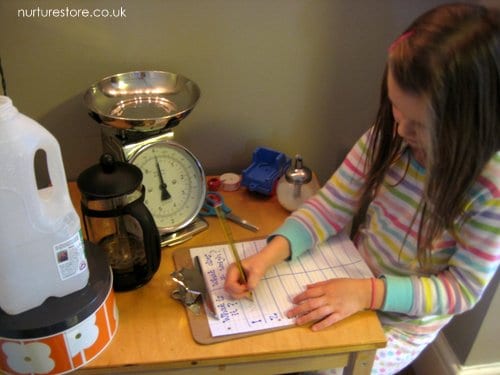
I love watching you working and doing some writing.
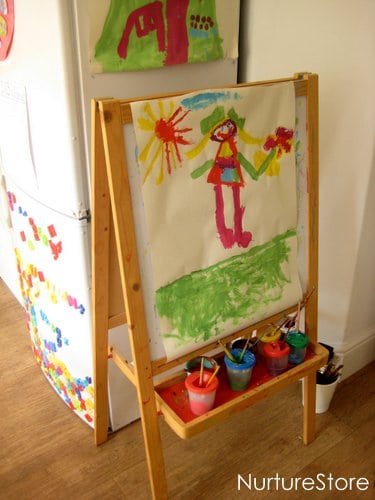
That’s a colourful picture. Can you tell me about it?
I love watching you paint. What colours are you using today?
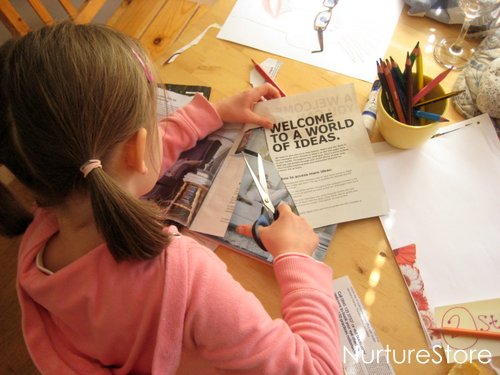
I love watching you think up ideas for making pictures.
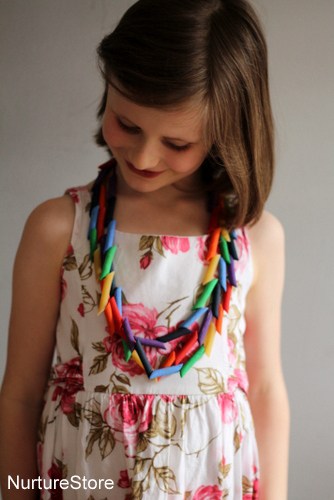
You look very happy with your necklace. How did you make it?
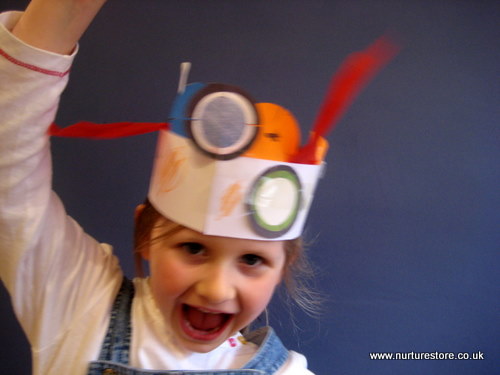
You look very proud of your hat. Did you have fun making it?
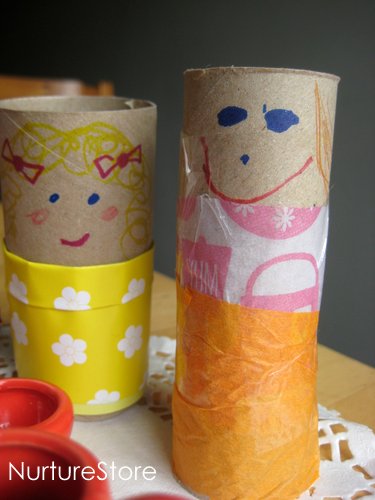
Wow, you made some puppets! How did you choose which materials to use?
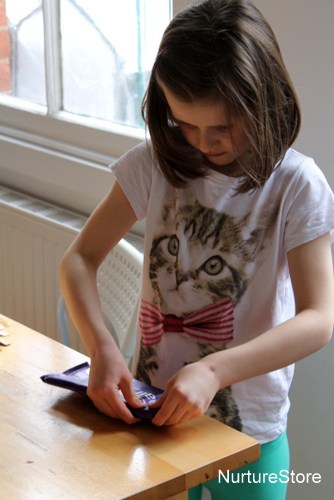
I love it when you help me do the cooking. You’re great company.
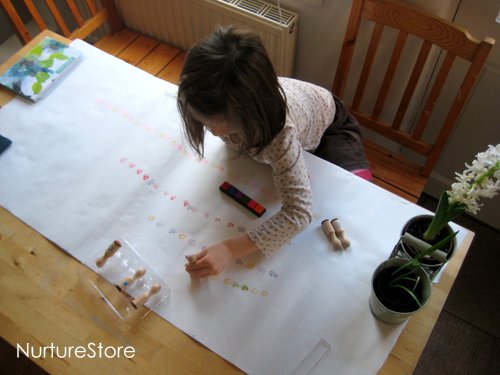
Those patterns took a long time, didn’t they? Look at all those numbers you have practised.
Get free resources for your children!
Did you know you can receive free weekly activity ideas, seasonal resources, free printables and extra bonuses from Nurturestore? You'll have creative learning ides for your children all year round!
Sign up in the box below and we'll send you your freebies!
By subscribing, you consent to our use of your personal data as per our Privacy Policy, which includes agreeing to receiving interest-based email from us.



